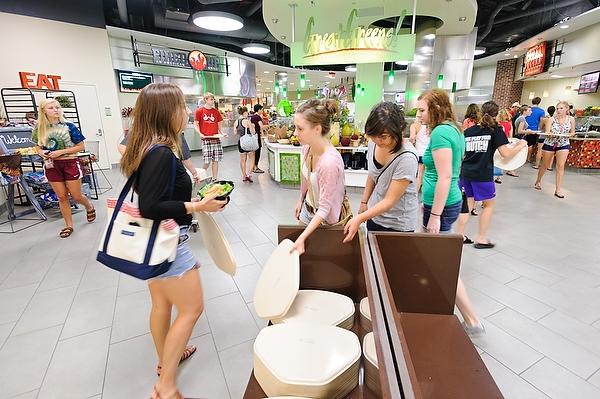With increasingly daunting information on the state of Earth’s waters, forests and expanses of arable land, most conscientious people give at least some passing thought to how they can personally lead more sustainable lifestyles. We are flooded with ideas of all kinds ranging from the simple and low-impact to the more difficult and higher-impact.
Easy fixes like keeping fewer lights on and shaving time off from our showers make us feel proactive, while serious decisions like driving a smaller car or owning an apartment rather than a suburban home genuinely make a difference to our planet’s resources. But one fix offers both simplicity and far-reaching impact.
We decide what to eat and drink more than three times every day of our lives, but this potential for environmental friendliness receives nowhere close to the media attention it deserves.
In my experience, the conversation focuses on local food. Seasonal and local food choices, of course, are beneficial, but few realize the extraordinary difference it can make to avoid eating animals and their byproducts. The improvement becomes clear with a basic understanding of biology: We can either eat plants directly, or we can use far more of them wastefully to grow livestock. Animal agriculture is thus a very resource-intensive process.
While making different choices on our own is important, the campus dining halls provide an opportunity to make our meals more sustainable without any second thought by us students who just want a cookie after a long day of classes.
One way to vastly decrease the amount of animal products in our dining halls is to switch what’s currently offered with plant-based alternatives. Many college dining services have already switched, and this is a great movement that we should be proud to join. Let campus dining know what you think!
Claire Clark ([email protected]) is a sophomore majoring in mathematics. She is the Activism Chair for the Nature and Animal Lover’s Association.











